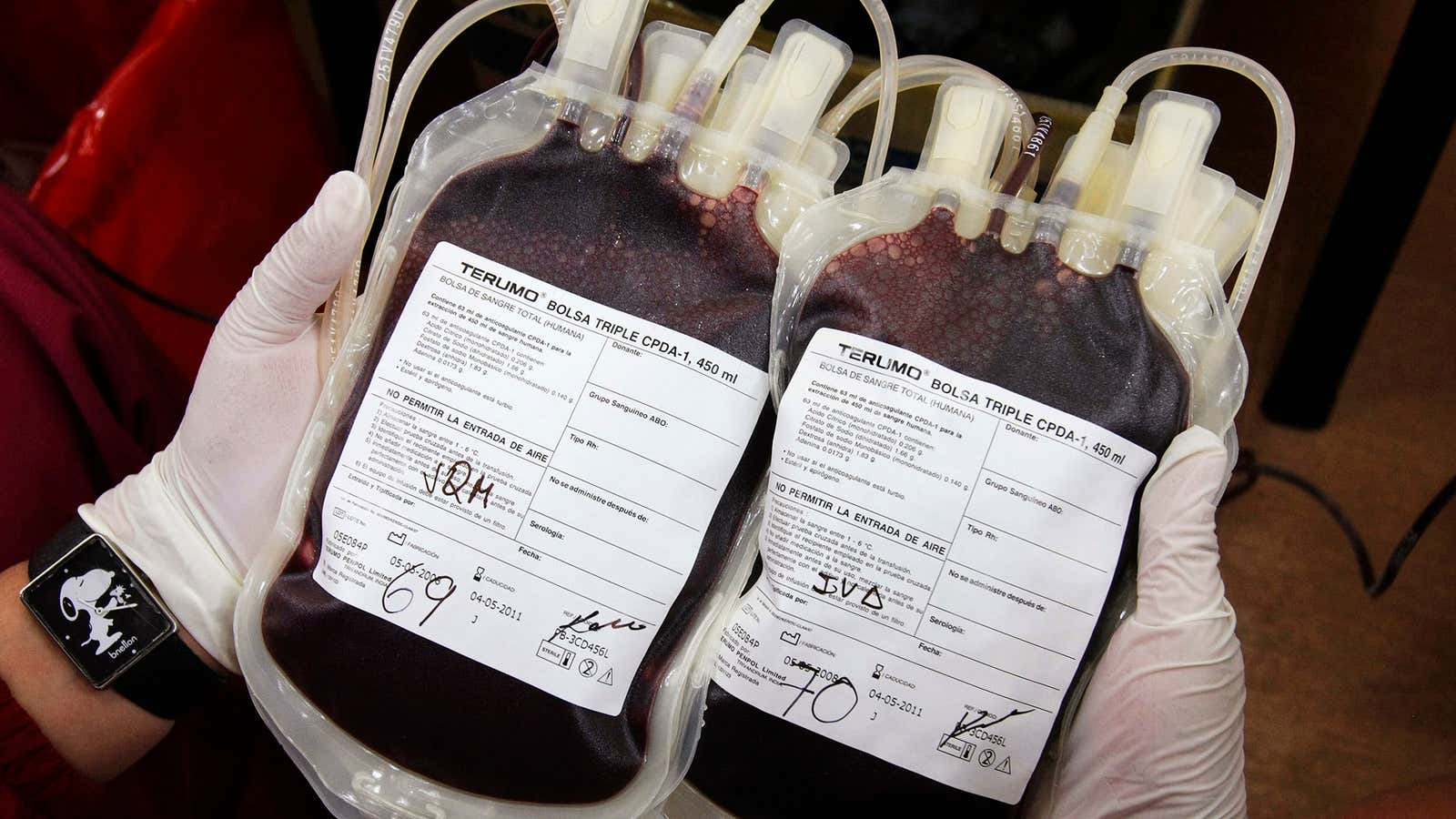It reads like the clichéd plot of a horror novel: by ingesting the blood of a younger person, you become younger yourself.
Incredibly, this more or less describes a clinical trial allowed by the US Food and Drug Administration (FDA). For $8,000, you can buy a place in the trial which, over two days, infuses you with 1.5 liters (about 3 pints) of a young person’s blood. Then, blood samples taken before the infusion and one month later will be tested for 100 biomarkers to see if you show any signs of reversing the aging process.
There is good reason to allow a trial for what seems like a somewhat bonkers idea. A remarkable experiment in 2014 rejuvenated the old idea of parabiosis, or giving young blood to an old person. However, instead of just transfering blood, Tony Wyss-Coray of Stanford University transfused young mice’s plasma—which is the yellowish part of the blood that remains after removing platelets and both red and white blood cells—into their older counterparts.
The tests showed that the older mice subsequently had better brain connections and stronger muscles in their hearts and other organs. Although Wyss-Coray doesn’t yet understand why these effects emerged, he believes that some proteins in young blood activate genetic mechanisms which trigger older bodies to rejuvenate their organs.
After the results of the study were published, Wyss-Coray started receiving strange emails. As he told the Guardian:
Alzheimer’s patients wanted infusions of young blood. So did numerous aged billionaires. One, who flies around in a jet with his name emblazoned on the side, invited Wyss-Coray to an Oscars after-party this year. (He didn’t go.) Another correspondent wrote with a more disturbing offer: he said he could provide blood from children of whatever age the scientists required.
Now, Wyss-Coray is advancing this work with a company he founded called Alkahest. The company has an ongoing trial involving infusions of young blood into 18 Alzheimer’s patients.
The new trial, planned by a different company called Ambrosia, is piggybacking on Wyss-Coray’s success. However, unlike Alkahest’s trial, Ambrosia’s is open to anyone over the age of 35. It aims to recruit around 600 people, who will each pay to receive blood from a person younger than 25 to study the effects.
The trial has come under fire for its pay-for-participation model. “There’s just no clinical evidence [that the treatment will be beneficial], and you’re basically abusing people’s trust and the public excitement around this,” Wyss-Coray told Science.
Others have questioned the trial’s design. It doesn’t have a placebo group, which is a key ingredient of a good clinical trial. The comparison between those who received the actual treatment with those who unknowingly receive infusions of their own plasma would provide better indicators of whether the procedure actually works. Instead, Ambrosia will rely on comparing participants’ blood before the infusion with younger blood and one month after the treatment.
No matter. Ambrosia has already attracted investment from tech billionaire Peter Thiel, who is, as Inc. put it “very, very interested in young people’s blood.”
